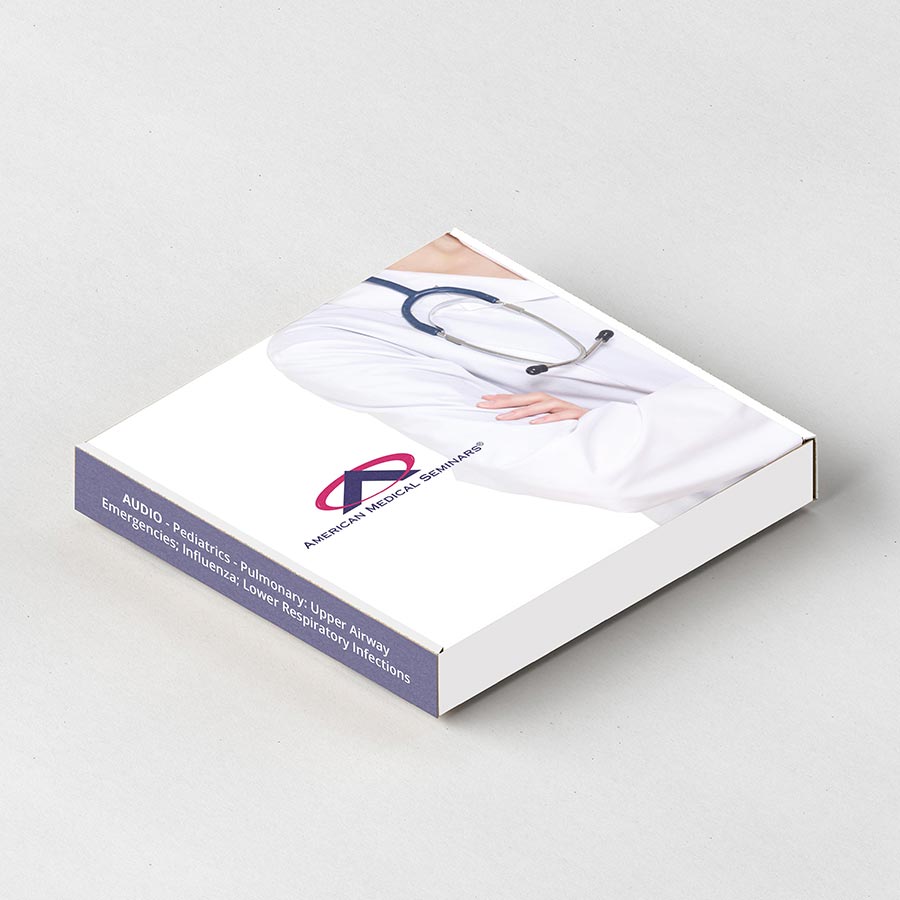Product Description
Expiration Date: July 1, 2019
Title: Pediatrics – Pulmonary: Upper Airway Emergencies; Influenza; Lower Respiratory Infections
Faculty: Robert A. Belfer, M.D.; Stephen C. Eppes, M.D., F.A.A.P.; and Michael J. Muszynski, M.D., F.A.A.P.
Original Release Date: July 1, 2016 Review Date: July 1, 2017 Expiration Date: July 1, 2019
TOPIC 1: Upper Airway Emergencies in the Pediatric Patient.
Upon completion of this session, using national Evidence Based Medicine sources including Cochrane Collaboration and published guidelines from sources including the American Academy of Pediatrics, the participant should be able to: EBM, GL, COMP
- Recommend medication therapy for selected upper airway emergencies.
- Interpret the most recent evidence-based literature in the approach to the child with croup.
- Distinguish and discriminate among the varied presentations of pediatric stridor.
TOPIC 2: Influenza: What’s New and What You Can Do.
Upon completion of this session, the participant should be able to: COMP
- Identify recent changes in influenza epidemiology.
- Enumerate CDC recommendations for immunization.
- Appropriately prescribe antiviral prophylaxis and treatment.
TOPIC 3: Pediatric Lower Respiratory Infections.
Upon completion of this session, using the evidence-based guidelines from EBM publications, the participant should be able to: EBM, GL, COMP
- Integrate the association of age, seasonal, clinical presentation, and chest x-ray findings with the etiology of pediatric pneumonia.
- Develop a diagnostic approach to infants and children suspected to have pneumonia and discuss the treatment options and the implications of emerging bacterial resistance.
- Apply the American Academy of Pediatrics Guidelines to the child with bronchiolitis.
- The receipt for any incentive-associated purchase will designate the value of the gift card separately from the cost of the learning activity.
- This incentive may have implications on your tax reporting obligations. Any reimbursed amount must be declared as personal income for tax purposes.


